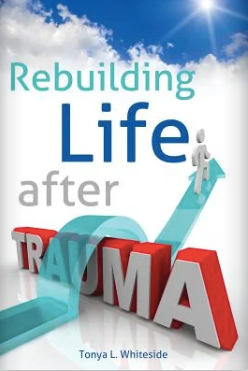MINDFULNESS BLOG/HEATH BLOG/KINDNESS BLOG/TEAMWORK BLOG
The Up Deeds blog
Our blog posts are created by those that share the same call to give back to others.
We give them the full credit they are due, and links so you can benefit from other information they share.

Healing Communities: The Power of Shared Experience After Tragedy
By Up Deeds
Tragedy has a unique way of stripping away the differences that often divide us as individuals and communities. When faced with loss or disaster, people frequently find themselves united by a common purpose—healing and support. This article explores how and why people come together after a tragedy, the bonds that form during these times, and the significance of these connections in the long run.
The Unifying Nature of Shared Experience
During a tragedy, individuals are often propelled into action by empathy and the human instinct to help. Whether it's a natural disaster, a violent event, or a community crisis, the urgency of the situation prompts people to prioritize collective well-being over existing differences in background, ideology, or beliefs. Shared emotions—grief, fear, hope—create a powerful sense of solidarity.
People bond in various ways during these difficult moments. They may come together to provide physical assistance, such as volunteering for rescue operations or donating supplies. Emotional support plays an equally crucial role, as individuals share their stories and struggles, creating a space for understanding and connection. This empathy fosters a spirit of collaboration, encouraging people to look beyond their differences.
Lasting Connections Beyond the Crisis
While many relationships formed during a tragedy are borne out of necessity, they can evolve into lasting connections. For example, communities affected by events like the September 11 attacks or Hurricane Katrina witnessed increased social cohesion. Many initial supporters transformed into long-term allies, organizing community events, support groups, or advocacy initiatives that continued long after the immediate crisis had passed.
A notable example is the rise of organizations formed in response to tragedy, such as the Sandy Hook Promise, established after the Sandy Hook Elementary School shooting. This organization evolved from a group of grieving parents into a nationwide movement advocating for gun reform and community safety, fostering connections that endure.
Maintaining Connections After the Crisis
To ensure that the bonds formed during a tragedy remain strong, it's essential to create opportunities for ongoing engagement. Here are some steps communities can take:
1. Establish Support Groups: Creating networks for survivors and those affected can provide a lasting space for sharing experiences and resources.
2. Organize Community Events: Regularly scheduled gatherings, memorials, or action events can help maintain a sense of community and shared purpose.
3. Encourage Volunteering: Engaging in service projects related to the initial tragedy can reinforce connections while also addressing ongoing community needs.
4. Create Online Platforms: Digital communities can facilitate ongoing communication and support, making it easier for individuals to stay connected despite physical distances.
Other Issues That Unite Us
While tragedy often serves as a catalyst for unity, other challenges can bring people together in meaningful ways. Social justice movements, environmental crises, or public health emergencies can also foster collaboration across diverse groups. The COVID-19 pandemic brought individuals together globally, as people recognized a shared responsibility to support each other.
Fostering Long-Term Bonds
Meaningful connections can arise from a shared desire to effect change, advocate for rights, or combat a common challenge. To nurture long-term bonds, it helps to:
- Cultivate Trust and Open Dialogue: Building an environment where individuals feel safe to express themselves fosters deeper connections.
- Encourage Collaboration on Mutual Goals: Working collectively towards a shared vision strengthens ties and promotes a sense of teamwork.
- Celebrate Successes: Acknowledging achievements, no matter how small, can reinforce the value of collaboration and inspire continued engagement.
Conclusion
Tragedy has the power to bring people together in profound ways. While the initial response may stem from a need for support and solidarity, these connections can evolve into lasting bonds that transcend the circumstances that brought them together. By fostering environments that promote ongoing engagement and collaboration, we can ensure that the spirit of unity continues long after the immediate crisis has passed. Through shared experiences, whether born from tragedy or common causes, we can build resilient communities that thrive on connection, understanding, and mutual support.

